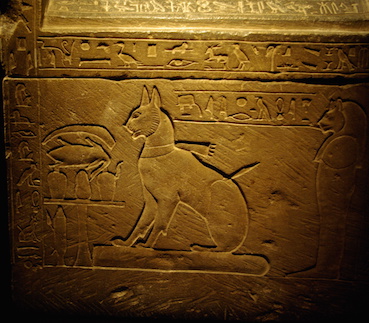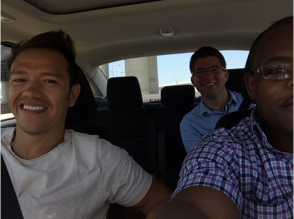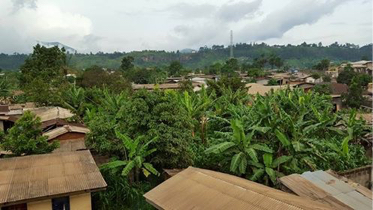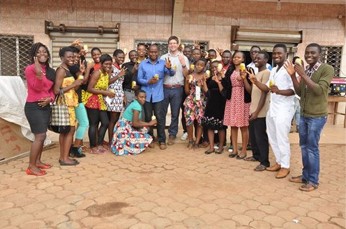
Week 7 Prompt: Animals
Non-human animals are often deeply integrated into human societies. Cats have guarded our homes for well over 12,000 years; and in many Western societies, dogs are treated like human children (perhaps for good reason). At the same time, the lines we draw to delimit animal-human interactions are uneven when not more simply unconsidered. Pigs, which are more intelligent than dogs, are seldom welcomed into polite society — except on dinner plates; and guinea pigs — a “fine and valuable food” in Central and South America — are popular childhood pets here in North America. This week, pay attention to animals. Which species are commonly kept as pets? Are dogs and cats protectors and companions? How and where do human and non-human animals commonly interact? (Parks? Zoos? Restaurants?) Take a picture of a place (or an animal) you believe is typical for your local area.
Zachary Weaver
Cardiff is similar to most other cities that I have been to in regards to the wildlife commonly seen in the city: pigeons, seagulls, and ravens are common sights flying through the sky (or waking students up early in the morning), while often times someone is walking their dog down the road or in the park.
In actuality, it is very common to see people bringing their dog down to the park for a bit of playtime. Every time I’ve been in a park playing soccer or walking by one on the way to class, there are always people and their dogs throwing balls, running around, or just playing in the mud. The Taff River runs through the center of the main park in the city, and in many places it is accessible from the walking and running trails weaving through the park. So, many people bring their dogs down to wade in the water, or maybe to clean them from all the mud that is present in the city).
Other wildlife in the city is relatively rare, with the exception of the ever-present city rat. However, those mostly stay hidden during the day. I’ve only seen one rat out during the day, and unfortunately that day it decided to dart across the sidewalk where we were walking to class and ended up getting stepped on (but not hurt!) but one of the people on the path.
As for the rest of Wales, the most common animal to see is the Welsh Dragon. Okay, it’s not a real animal, but it is one of few national flags with an animal prominently displayed, and the Welsh flag is everywhere! In actuality, the most common (real) animal to see is much more mundane than a dragon – sheep. Since Wales is a mostly rural country, sheep farming makes up most of the economy. One of my favorite parts of the Welsh countryside is driving through common pastures. Many farmers will collectively own land, so their flocks share large, open pastures. These pastures cross roads, and the entrances to these areas feature grates on the road that have slits that are spaced just far apart enough so that livestock can’t escape. Also, farmers will spray paint parts of the livestock so they can distinguish which livestock belong to which farmer! It makes it fun when you’re just driving along and all of the sudden you have to stop because there are sheep in the middle of the road!
Grace Western
When I tell people that I am in Cameroon, West Africa, many people picture giraffes, lions, and elephants as my everyday scenery. However, I have yet to see any. Yaoundé, where I am currently living, is one of the largest cities in Cameroon with 3 million inhabitants. When we were living in Kribi, a coastal town, we were told that elephants once resided in the neighboring rainforest, but were driven away by development. Yet, Cameroon claims the title “Africa in Miniature” so they do have what many equate with Africa: animals. In the northern region, specifically in the city of Ngaoundéré, there are safaris to see these animals. This is a popular tourist attraction but as of late is not the safest due to Boko Haram. However, there is an animal I did not expect to see nearly as frequently as I do: lizards! They are everywhere and in every color. They are equivalent to mice in the U.S. but evidently are far less terrifying and more beautiful. Plus, you look up at the ceiling and watch them in their rainbow scales walk upside down and you can’t help but be impressed. Children even begin to consider some lizards pets, though not nearly in the same way we do in the U.S. The concept of pets here is quite different. As a self-proclaimed dog lover, I was ecstatic to hear that my host family in Yaoundé had a dog. However, the family dog lives outside and only gets attention at meal time. It seems the purpose of family dogs here is more of a security precaution. Additionally, there are stray dogs that just roam the street with no owners and just keep to themselves. Here, it seems, there are no pets, just animals.





